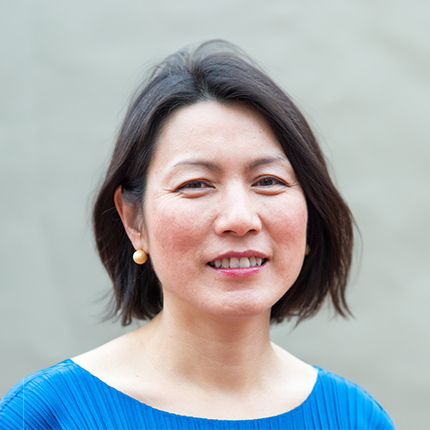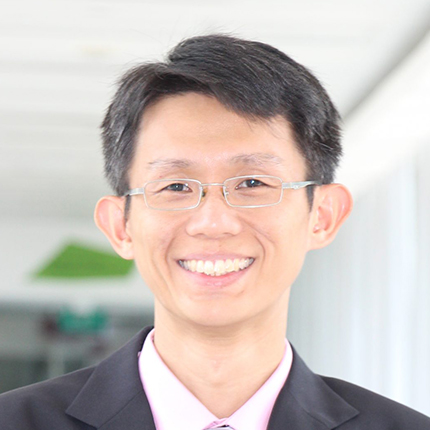Our Members by Research Themes
Advancing translational innovation through collaboration
Home » About Us » Our People » Research Themes
HLTRP is a place where biologists, bioinformaticians, and clinicians work together to answer questions about ageing. Fundamental research in this sub-theme utilises cell lines, invertebrates, fish, and rodents as the main species to investigate biological mechanisms underlying ageing and to test the effects of interventions such as small molecules, drugs, or natural products on ageing biomarkers. These models enable us to find out whether the intervention increases healthspan or lifespan, or whether it delays systemic or organ-specific ageing (such as brain or reproductive system), and if so, through which pathways. Moving from cell and animal models, our bioinformaticians utilise quantitative models to predict biological ageing and identify targets of interest for ageing intervention. Last but not least, several ongoing clinical trials are being run to find out the effects of pharmaceutical and lifestyle intervention on ageing biomarkers in human.
HLTRP is a place where biologists, bioinformaticians, and clinicians work together to answer questions about ageing. Fundamental research in this sub-theme utilises cell lines, invertebrates, fish, and rodents as the main species to investigate biological mechanisms underlying ageing and to test the effects of interventions such as small molecules, drugs, or natural products on ageing biomarkers.
These models enable us to find out whether the intervention increases healthspan or lifespan, or whether it delays systemic or organ-specific ageing (such as brain or reproductive system), and if so, through which pathways. Moving from cell and animal models, our bioinformaticians utilise quantitative models to predict biological ageing and identify targets of interest for ageing intervention. Last but not least, several ongoing clinical trials are being run to find out the effects of pharmaceutical and lifestyle intervention on ageing biomarkers in human.

Andrea Maier
Professor, Medicine
Research interests:
- Geriatrics and internal medicine

Brian Kennedy
Professor, Biochemistry & Physiology
Research interests:
- Biology of ageing

Jan Gruber
Associate Professor
Research interests:
- Molecular mechanisms of ageing

Huang Zhongwei
Deputy Director and Adjunct Assistant Professor, NUS Bia-Echo Asia Centre for Reproductive Longevity and Equality (ACRLE)
Research interests:
- Reproductive ageing
We have established the SG70 cohort since 2021 for an integrated and holistic approach to examining the effects of biological, lifestyle (including diet) and socioeconomic factors that affect multi-dimensional ageing outcomes as Singaporeans transit from health to morbidity around the age of 75 years. Our strategy is to recruit 2,500 Chinese nested in the well-characterized population-based longitudinal Singapore Chinese Health Study cohort with more than 20 years of follow-up and with well-established cohort databases, as well as archived biospecimens (blood and urine) collected more than 15 years ago. In addition, 250 Malays and 250 Indians matched by age, sex and housing estates will be recruited to complete this multi-racial cohort. The SG70 study will advance knowledge about frailty in terms of phenotype diversity, etiologic heterogeneity and factors underpinning pathophysiologic pathways of its multi-dimensional aspects. Beyond establishing associations, this cohort seeks to elucidate the etiologic roles of biological factors in the pathogenesis of health-related ageing outcomes, identify modifiable factors to promote healthy longevity, and identify risk biomarkers that could be developed for early detection or screening of adverse outcomes in ageing. Findings will provide the scientific evidence for a multi-dimensional approach so that personalized and targeted interventions can be implemented for individualized care and management for community-based older adults.

Koh Woon Puay
Professor, Dean’s Office (Medicine)
Research interests:
- Epidemiology of chronic diseases

Marie-V Clement
Associate Professor, Biochemistry
Research interests:
- Regulation of cell survival and cell death

Esther Wong
Research Assistant Professor, Physiology
Research interests:
- Neurodegeneration and age-related diseases

Karen Crasta
Research Assistant Professor, Physiology
Research interests:
- Chromosome instability and age-related diseases
Mitochondria play a key in the regulation of many immune functions through metabolic control, calcium homeostasis and ROS production, thus assisting host defenses against pathogens. Mitochondria integrate fuel metabolism to generate energy in the form of ATP. Mitochondria oxidize pyruvate (derived from glucose or lactate), fatty acids and amino acids to harness electrons onto the carriers NADH and FADH2. Ageing is associated with progressive mitochondrial dysfunction that occurs due to the accumulation of mitochondrial DNA (mtDNA) mutations and increased reactive oxygen species (ROS) production that causes oxidative damage to cellular macromolecules, thereby leading to reduced respiratory chain activity and adenosine triphosphate (ATP) generation.

Kevin Tan
Associate Professor, Microbiology & Immunology
Research interests:
- Microbiome-host interactions
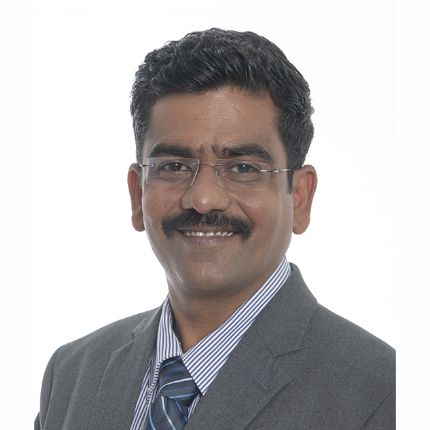
Mallilankaraman Karthik Babu
Assistant Professor, Physiology
Research interests:
- Mitochondrial dysfunction in ischemic stroke

Vincenzo Sorrentino
Assistant Professor
Research interests:
- Biology of Ageing With a Focus on the Interconnection Between Mitochondrial Homeostasis and Proteostasis.

Volker Patzel
Senior Lecturer, Microbiology & Immunology
Research interests:
- RNA technologies
Skeletal muscle is the largest organ in the human body, with the capacity to modulate inter-organ crosstalk. Age-related loss in skeletal muscle mass and strength (sarcopenia) contributes to the onset of frailty, as well as the development of some age-associated chronic conditions, such as type 2 diabetes and cognitive impairment. Accumulating evidence suggest that improving muscle health with exercise and nutritional interventions can modulate and delay the progression of these conditions. HLTRP is interested in developing novel solutions to preserve and enhance muscle health; faculty members have ongoing work in basic cell culture models, pre-clinical mouse models as well as human studies.

Andrea Maier
Professor, Medicine
Research interests:
- Geriatrics and internal medicine

Brian Kennedy
Professor, Biochemistry & Physiology
Research interests:
- Biology of ageing
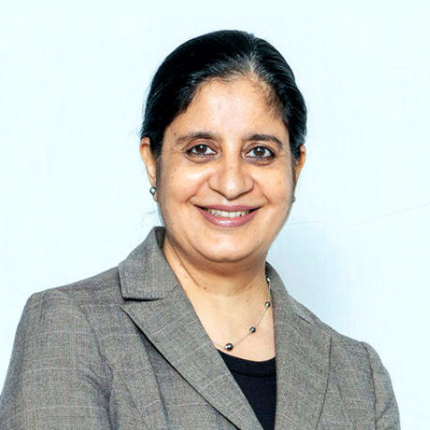
Reshma Taneja
Professor, Physiology
Research interests:
- Skeletal muscle differentiation and regeneration

Soong Tuck Wah
Professor, Physiology
Research interests:
- Diversification of calcium channel function in neurological disorders

Tsai Shih-Yin
Assistant Professor, Physiology
Research interests:
- Protein homeostastis in ageing
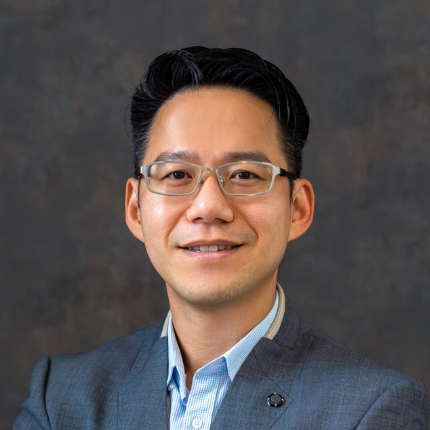
Goh Jorming
Research Assistant Professor, Physiology
Research interests:
- Exercise and age-associated immunosenescence

Soong Tuck Wah
Professor, Physiology
Research interests:
- Diversification of calcium channel function in neurological disorders

Low Chian Ming
Associate Professor, Pharmacology
Research interests:
- Functional roles of NMDA receptors

Saji K. Sreedharan
Associate Professor, Physiology
Research interests:
- Ageing and neurodegeneration
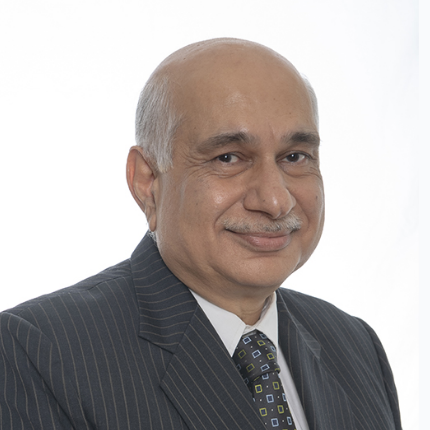
Sanjay Khanna
Associate Professor, Physiology
Research interests:
- Circuit mechanism of dementia

Andrew Tan
Assistant Professor, Physiology
Research interests:
- Synaptic mechanisms in the central auditory system

Jai Santosh Polepalli
Assistant Professor, Anatomy
Research interests:
- Molecular and cell biology

John Chua
Assistant Professor, Physiology
Research interests:
- Neurodegeneration and neuronal ageing

Huang Hua
Research Assistant Professor, Physiology
Research interests:
- RNA processing
Neuroscience is inherently interdisciplinary in its quest to explain the brain. Like all biological structures, the brain operates at multiple levels, from nano-scale molecules to meter-scale systems.

Soong Tuck Wah
Professor, Physiology
Research interests:
- Diversification of calcium channel function in neurological disorders

Esther Wong
Research Assistant Professor, Physiology
Research interests:
- Neurodegeneration and age-related diseases
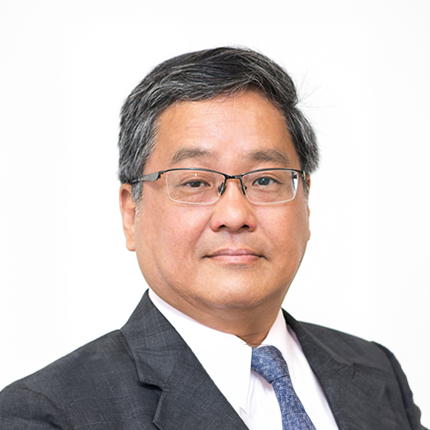
Christopher Chen
Associate Professor, Pharmacology
Research interests:
- Neurodegenerative disease

Gavin Dawe
Associate Professor, Pharmacology
Research interests:
- Neural stem cells and neurogenesis
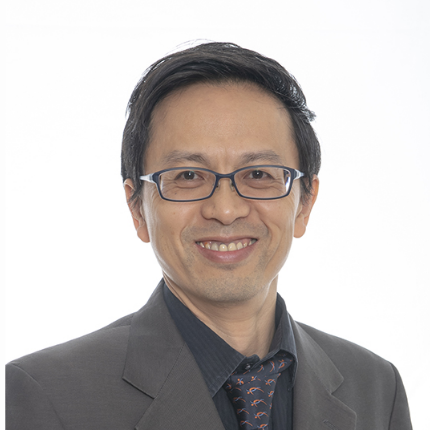
Ling Shuo-Chien
Associate Professor, Physiology
Research interests:
- Neurodegeneration and ageing

John Chua
Assistant Professor, Physiology
Research interests:
- Neurodegeneration and neuronal ageing

Ng Shi Yan
Assistant Professor
Research interests:
- Induced Pluripotent Stem Cell Disease Modeling
- Neurodegeneration

Esther Wong
Research Assistant Professor, Physiology
Research interests:
- Neurodegeneration and age-related diseases
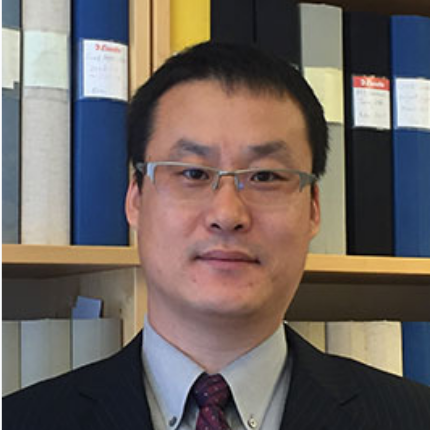
Feng Lei
Research Assistant Professor, Psychological Medicine
Research interests:
- Epidemiology and prevention of cognitive decline

Judy Sng
Senior Lecturer, Pharmacology
Research interests:
- Neurodevelopment and diseases

Mitchell Lai
Senior Lecturer, Pharmacology
Research interests:
- Dementia neurochemistry and biomarkers
Ageing is the most robust non-modifiable risk factor for incident stroke, which doubles every 10 years after age 55 years. Approximately three-quarters of all strokes occur in persons aged ≥65 years.

Soong Tuck Wah
Professor, Physiology
Research interests:
- Diversification of calcium channel function in neurological disorders

Low Chian Ming
Associate Professor, Pharmacology
Research interests:
- Functional roles of NMDA receptors

Raymond Seet
Associate Professor
Research interests:
- Stroke prevention strategies
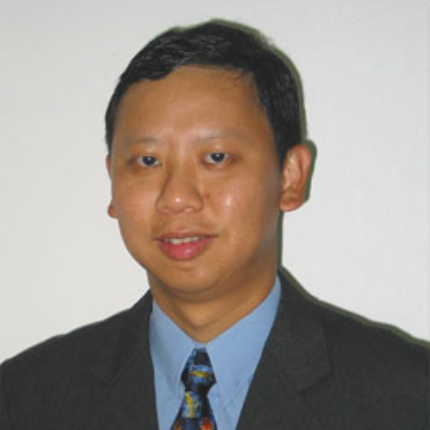
Ti Lian Kah
Associate Professor, Anaesthesia
Research interests:
- Outcomes after cardiac surgery
As human life expectancy rises, the aged population will increase. Ageing is accompanied by changes in tissue structure, often resulting in functional decline. For example, ageing within blood vessels contributes to a decrease in blood flow to important organs, potentially leading to organ atrophy and loss of function. In the central nervous system, cerebral vascular ageing can lead to loss of the integrity of the blood-brain barrier, eventually resulting in cognitive and sensorimotor decline. One of the major of types of cognitive dysfunction due to chronic cerebral hypoperfusion is vascular cognitive impairment and dementia (VCID). In spite of recent progress in clinical and experimental VCID research, our understanding of vascular contributions to the pathogenesis of VCID is still very limited. The prevalence of vascular cognitive impairment (VCI), which includes milder forms of cognitive impairment, is strongly age related. In subjects aged 65 to 84 years, the prevalence of mild forms of VCI not qualifying for dementia is higher than that of VaD.

Christopher Chen
Associate Professor, Pharmacology
Research interests:
- Neurodegenerative disease

Feng Lei
Research Assistant Professor, Psychological Medicine
Research interests:
- Epidemiology and prevention of cognitive decline

Mitchell Lai
Senior Lecturer, Pharmacology
Research interests:
- Dementia neurochemistry and biomarkers

Rufaihah Binte Abdul Jalil
Adjunct Assistant Professor, Surgery
Research interests:
- Cardiac and vascular regeneration
Ageing, characterised by a progressive loss of structural and functional integrity of tissues and organs, is the greatest risk factor for most adulthood non-infectious diseases in humans. The science of ageing is an important focus for biomedical research due to the opportunities for novel and ground-breaking discoveries that could potentially lead to new therapies for diseases that are exerting increasing socioeconomic burdens globally.
Cellular ageing lies at the heart of organismal ageing and underpins the functional deterioration of aged tissues and organs. However, what ageing means at the molecular and cellular levels remains one of the murkiest areas of science. Senescence and metabolic stability at a cellular level, have both been identified to be central to ageing, yet this process is not fully understood. This points to an important, yet under-explored opportunity for us to better understand ageing, using stem-cell technology.
The NUS-IMCB Ageing Regenerative Medicine Joint Lab aims to study ageing in five models systems:
1. Brain
2. Eye
3. Heart
4. Pancreas / Diabetes
5. Peripheral Blood
In this joint project, there are 5 Work Packages (WPs), each led by a Principal Investigator (PI).
WP1: Investigating age-related neuronal decline using 3D human neural organoids and elucidating pathways to delay neuronal senescence (PI: Ng Shi Yan).
WP2: Investigating age-related RPE and photoreceptor decline using 3D human organoids and elucidating pathways to delay neuronal senescence (PI: Su Xinyi)
WP3: A metabolomic approach to unravel mechanisms regulating human cardiac ageing using 3D organoids (PI: Soh Boon Seng)
WP4: Addressing the healthspan and rejuvenating pancreatic beta cells in the context of ageing and diabetes (PI: Adrian Teo)
WP5: Deciphering molecular biomarkers for vascular ageing using peripheral blood at a single-cell resolution followed by “Age-Repellant-HSC” generation for transfusion (PI: Jonathan Loh)
Discoveries made through this NUS-IMCB Joint Lab will serve as the foundations for translation into new anti-ageing and regenerative therapies.

Brian Kennedy
Professor, Biochemistry & Physiology
Research interests:
- Biology of ageing
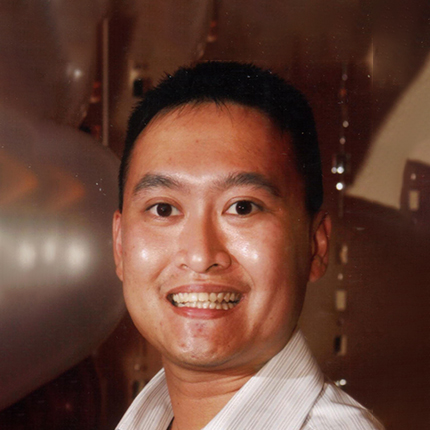
Jonathan Loh
Associate Professor
Research interests:
- Stem Cell Biology
- Cell Fates Engineering
- Cellular Reprogramming & Trans-differentiation

Ng Shi Yan
Assistant Professor
Research interests:
- Induced Pluripotent Stem Cell Disease Modeling
- Neurodegeneration

Soh Boon Seng
Assistant Professor
Research interests:
- Stem Cells
- Organoids
- Cardiovascular Diseases
- Neuroscience
- Metabolic Disorders
The Bia-Echo Asia Centre for Reproductive Longevity and Equality (ACRLE), established under the NUS Yong Loo Lin School of Medicine (NUS Medicine), was made possible through a gift from the Bia-Echo Foundation, founded by lawyer and entrepreneur, Nicole Shanahan. The Centre will collaborate with our partners and specialise in research for women’s reproductive health, ageing and digital medicine, and lead the conversation in women’s reproductive longevity and equality.
The work of the Centre is focused within four strategic tracks. The efforts within the tracks will seek to improve and lengthen female reproductive health and longevity, help women preserve and improve their reproductive systems for conception and general health, potentially enable women to conceive safely in their later years, and to remain healthy longer. ACRLE advocates and educates on reproductive equality for all and works closely with other academic institutions and stakeholders to change the narrative of reproductive longevity and equality.

Brian Kennedy
Professor, Biochemistry & Physiology
Research interests:
- Biology of ageing

Huang Zhongwei
Deputy Director and Adjunct Assistant Professor, NUS Bia-Echo Asia Centre for Reproductive Longevity and Equality (ACRLE)
Research interests:
- Reproductive ageing


